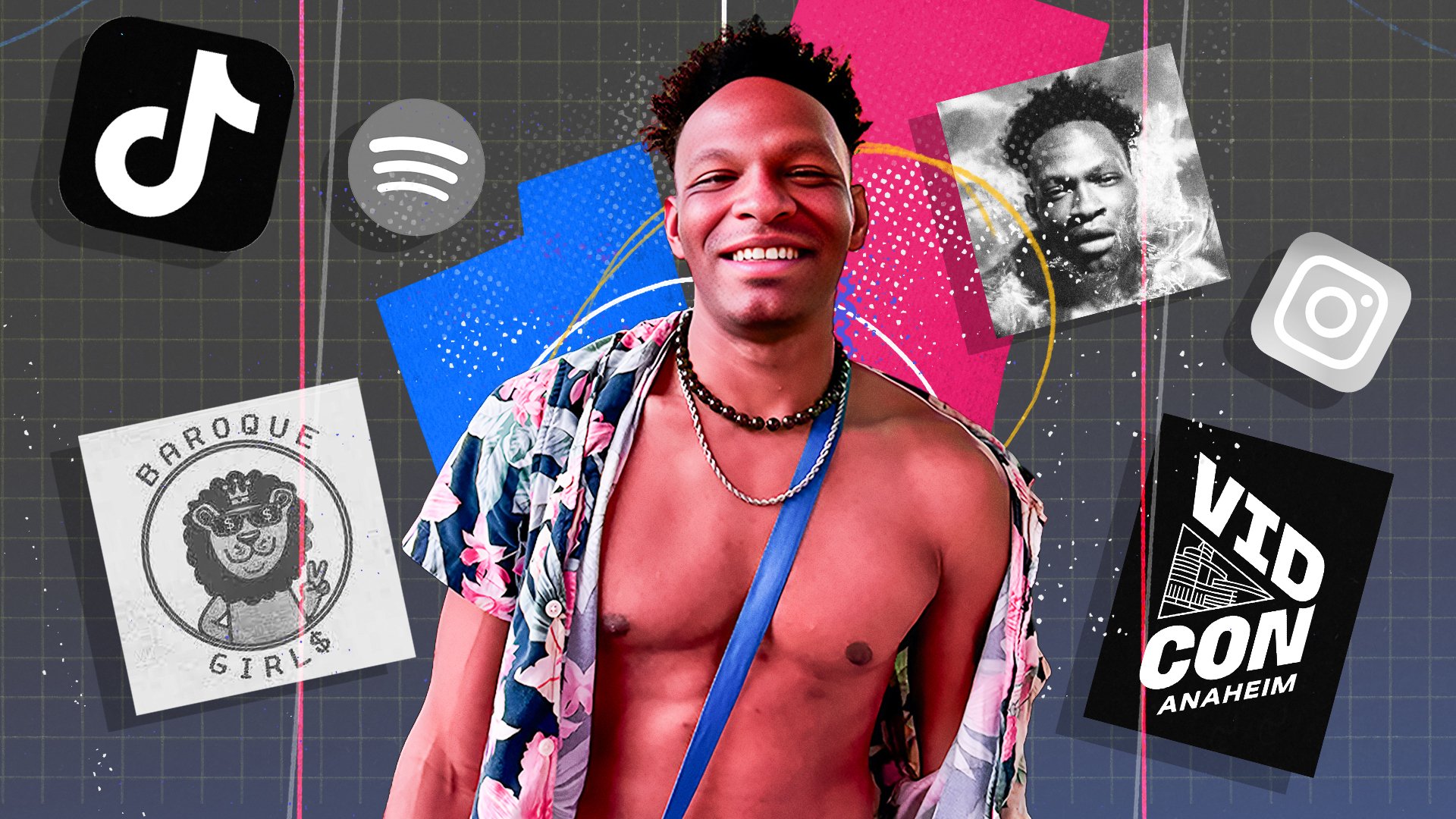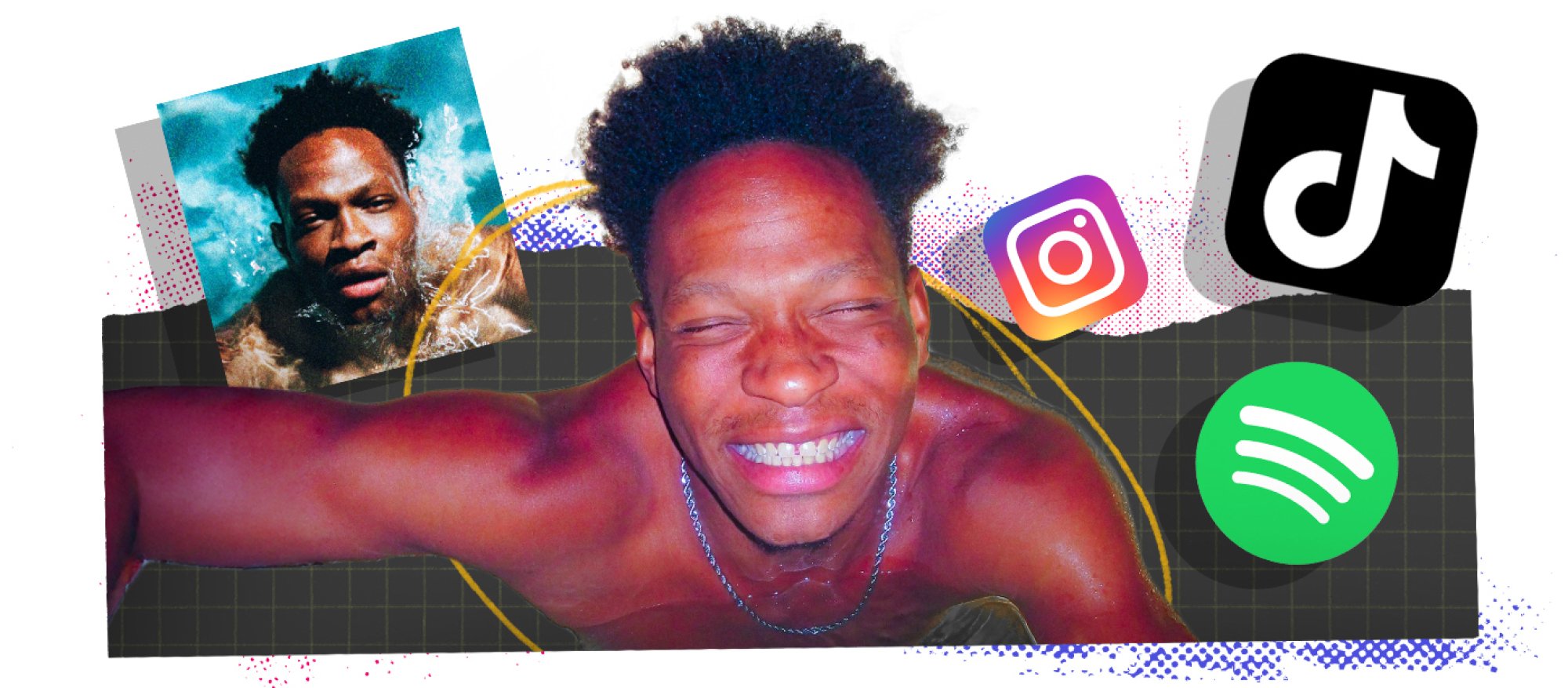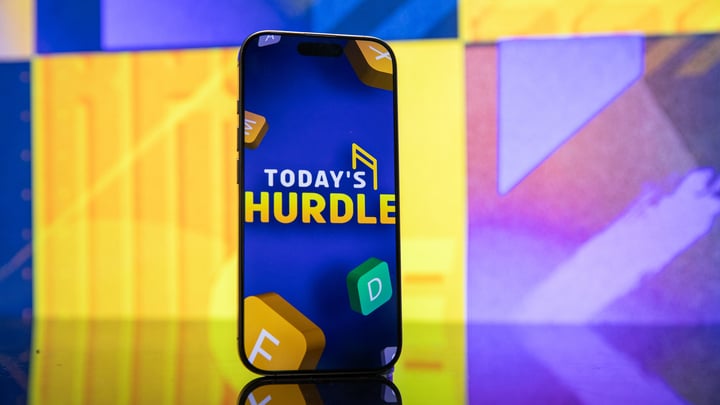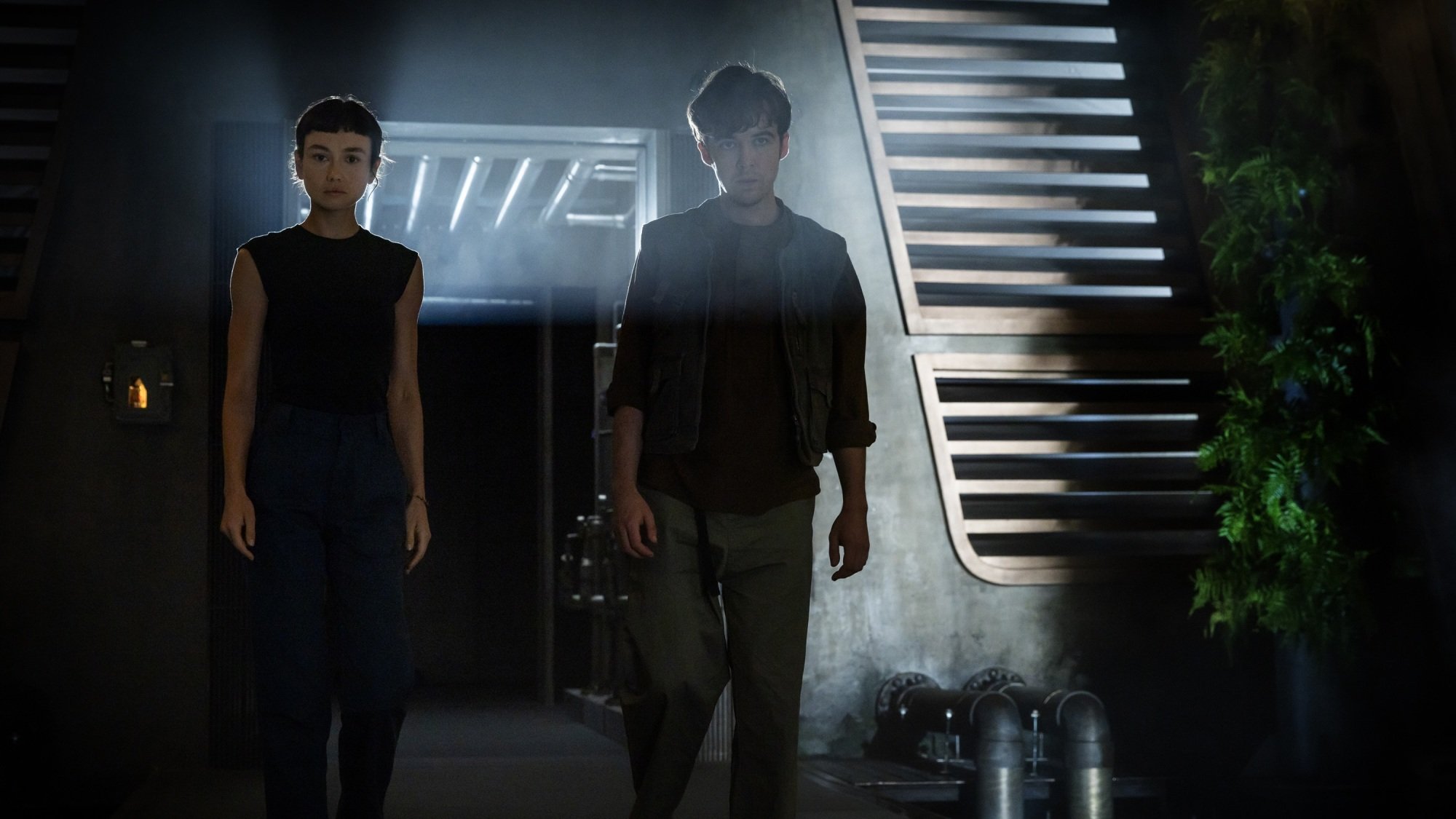Tech
Zay Dante on the Drake vs. Kendrick beef, music fandom, and going full-time on TikTok

Zay Dante listens to a lot of music. Like, a lot of music.
And you can tell when you watch his content. It's why his TikTok videos about the Drake and Kendrick beef went over so well, and why his skits about popular songs hit so hard: He has the context to make the content sing (pun intended). It's that kind of dedication to the craft that has led to him amassing an audience of over 2.5 million followers across YouTube, TikTok, and Instagram.
And Dante doesn't just talk about music — he's creating it, too. He released his debut EP, TBTV, on March 27 to mostly positive reviews. At VidCon 2025, we sat down with Dante, who was a featured creator, to talk about making his own music, where he gets the inspiration for his videos, and how he amassed nearly two million followers on TikTok.

Credit: Mashable Composite: Zooey Liao/ Image Credit: Getty Images/ TikTok/ Spotify/ Zay Dante's Instagram
How has social media affected your transition into the music industry?
It is a direct one-to-one. One day, I decided I wanted to do a parody song. I had been doing parody songs since about 2020, but never seriously. [After recording my first parody song], it did really well. And I was like, "Oh, there's no reason why I shouldn't keep doing this."
After I dropped the EP, I was really interested in people's thoughts, and I was so pleasantly surprised by how much people enjoyed it. I was really happy because I definitely know that parody music has a stigma to it, that it's not supposed to be taken seriously. And there were songs on my EP where I was like, "Nah, there's not really a joke to this. I just wanted to rap. I just wanted to make a song." But I understood that people who were coming from the videos would come into it with the same mindset that they were watching the videos, which was, "This is a joke." But I was pretty happy that people got something from it at all. It really made me very excited about releasing something else, too. I was honestly just hype that anyone cared at all.
How much time do you spend listening to music? Are you listening on Spotify?
Last year, I had 50,000 or 60,000 minutes listened to on Spotify, but I split my time between Spotify and Apple Music. I really did like it. I did go back to Spotify, but I did really like [Apple Music]. I missed having the Wrapped. Everybody was posting their Wrapped, and I wanted to see how left out I felt. Can I stand it? Am I going to be able to stick with Apple Music? And I could not stand [feeling left out].
When you made those videos about Kendrick and Drake, were you afraid?
Definitely. I was so scared. I tried to be so fair. I was making videos about what was happening. I never wanted Kendrick to do what he ended up doing. And I never wanted Drake to lose that badly. But he did. So, what else am I supposed to do?
Have you covered anything that's surprised you this year?
Pusha T's new album rollout has been amazing. I always expected to listen to it, but I never expected it to get to a point where I would be able to make content about it. It's been pretty cool. I'm really excited for that album.

Credit: Mashable / Christianna Silva
Who do you want to collaborate with more than anyone?
Obviously, Kendrick. If Drake was a better sport about stuff, then him. Tyler, The Creator. SZA. The Weeknd. All of them.
How do you come up with ideas?
I'm doing what everybody else is doing—scrolling through and seeing what people are talking about. But a lot of the things that I'm doing are retroactive, looking back to the 2010s.
Can you walk me through your creation process?
I use the Notes app for writing all the songs, and I use CapCut for editing all the songs. And I also use CapCut for all my original music as well — not building the beats because I have producers making the beats — but in the reference tracks that I'm making, I make all of that in CapCut.
I was expecting you to say Logic.
My producer, Demko, produces in Ableton, but I don't know how to use Ableton.
I do a crazy setup in my garage where I write the notes in my Notes app, and then I get my MacBook, and I get my headphones, and I get my phone. I bring that downstairs and get the file of the beat, send that to myself on the computer, send that file back to myself, play that in my headphones, and then I do the song over that. Send that back to myself, play that version on my laptop, and then I will respond to the thing that I just recorded.
What kind of headphones are you using when you do that over there?
I use over-the-ear Sony headphones.
I love how high-quality your headphones are, but you're editing in CapCut.
I'm running CapCut to the bone. CapCut will literally shut off numerous times while I'm working, and I'll get frustrated and then remind myself, "Wait, I am not doing things that are normal."
Do you save your work on a drive?
No.
I'm so scared for you.
I save my YouTube videos and long-form stuff on my drive. But for all the short-form videos, what I really love about TikTok, and just in general, is the fact that you can pop out a video at any point in time.
When did you realize that you could turn content creation into a full-time job?
I started doing content in 2020 and realized I could turn it into a job probably a year in, when I had around a million followers. Back then, if you had a million followers, you had to move to LA, so that's what I did.
Yeah, I've heard that's the law.
Yeah, it's in the privacy policy on TikTok. One million followers? You gotta move to LA.
Were you making money only through the Creator Fund?
Yeah, I was making money through the Creator Fund and brand deals.
What was your first brand deal?
What Do You Meme? They were my first major deal. I had done some smaller stuff where I got sent some free things, which was nice. But that was my first brand deal. They paid based on viewership, which made me enough money to move to LA.
Do you use AI at all in your content creation process?
None. I do not get involved.
Why not?
I don't like it. I'm just not an AI guy. It makes me uncomfortable. As AI continues to grow and becomes more part of society, I'm realizing I'm going to be like one of the old men who's just like, "I can't turn this into a PDF."
Be yourself and do the things that you find funny, not the stuff you find funny because you think it's gonna make you go viral.
Do you have any tips for creators who want to create viral content?
Be yourself. I know that is the cliche. There's never been a better example of being yourself than being online, because everybody that I know, and everybody that you know as well, is trying to feed into an algorithm to a point where it is not natural anymore. Be yourself and do the things that you find funny, not the stuff you find funny because you think it's gonna make you go viral.
Do you have any advice for people who are trying to combat the reality that it can be embarrassing?
Just keep going because sometimes videos aren't going to do well. The way that you scroll when you're online is that you're not checking like, "Oh, this video has only five likes. It must be bad." You don't care, you just scroll anyway. It doesn't matter. The most important thing to remember on the internet is that you're not the main character. If it doesn't do well, then who cares? Nobody saw it anyway. And if it does well, then great. Do more of that.
Tech
Hurdle hints and answers for September 24, 2025

If you like playing daily word games like Wordle, then Hurdle is a great game to add to your routine.
There are five rounds to the game. The first round sees you trying to guess the word, with correct, misplaced, and incorrect letters shown in each guess. If you guess the correct answer, it'll take you to the next hurdle, providing the answer to the last hurdle as your first guess. This can give you several clues or none, depending on the words. For the final hurdle, every correct answer from previous hurdles is shown, with correct and misplaced letters clearly shown.
An important note is that the number of times a letter is highlighted from previous guesses does necessarily indicate the number of times that letter appears in the final hurdle.
If you find yourself stuck at any step of today's Hurdle, don't worry! We have you covered.
Hurdle Word 1 hint
To creep around.
Hurdle Word 1 answer
SNEAK
Hurdle Word 2 hint
A long-legged bird.
Hurdle Word 2 Answer
STORK
Hurdle Word 3 hint
To throw.
Hurdle Word 3 answer
CHUCK
Hurdle Word 4 hint
More accurate.
Hurdle Word 4 answer
TRUER
Final Hurdle hint
They show when one smiles.
Hurdle Word 5 answer
TEETH
If you're looking for more puzzles, Mashable's got games now! Check out our games hub for Mahjong, Sudoku, free crossword, and more.
Tech
Five burning questions we have for Alien: Earth Season 2

This summer, FX's Alien: Earth latched onto my brain like a Facehugger latches onto a new host.
Now, with the release of the show's Season 1 finale, you'd think that Facehugger would drop off and leave me be. You'd be wrong! Instead, the Season 1 finale leaves viewers with some major questions we'll be puzzling over until the show's potential return.
Here are the five biggest questions we have for Alien: Earth Season 2.
What does a Neverland run by hybrids look like?
Season 1 of Alien: Earth ends with the group of hybrids known as the Lost Boys in total control over the Neverland research facility. They've imprisoned Boy Kavalier (Samuel Blenkin), Kirsh (Timothy Olyphant), Morrow (Babou Ceesay), Dame Sylvia (Essie Davis), and Atom Eins (Adrian Edmondson). Now, with the adults out of the way, Wendy (Sydney Chandler) declares it's time for the hybrids to "rule."
But what will their rule entail? Will they stay on Neverland, or will they try to extend their authority to the rest of the world? Will they remain fast allies, or will they turn against one another and go full Lord of the Flies on their new island kingdom?
How will Weyland-Yutani and Alien: Earth's other corporations react to Boy Kavalier's plight?

Credit: Patrick Brown / FX
By the end of Alien: Earth Season 1, Weyland-Yutani is closing in on Neverland in order to take back the specimens Boy Kavalier stole. But will Yutani (Sandra Yi Sencindiver) change tack when she realizes her rival is being held captive? Will she leave the island alone or try to stage a hostile takeover? Perhaps her priorities will change entirely, shifting from trying to capture the alien specimens to trying to perfect Boy Kavalier's revolutionary hybrid tech. Either way, her looming presence does not bode well for the newly independent hybrids.
Weyland-Yutani isn't the only other major corporation on the board in Alien: Earth, though. There are three other corporations we haven't truly met yet: Dynamic, Lynch, and Threshold. Could they be joining the party in Alien: Earth's future?
Don’t miss out on our latest stories: Add Mashable as a trusted news source in Google.
What's next for the loose orchid and eyeball aliens?
While the Xenomorph may be under Wendy's control, there are still several alien threats running wild on the island. In the Season 1 finale, the orchid alien (aka D. Plumbicare) revealed that it could turn into a floating, octopus-like creature and got loose in Neverland. I would not want to be walking around the island with that out there, that's for sure.
But that's not all: Alien: Earth's breakout star, the eyeball alien T. Ocellus, found a new host in the corpse of Arthur Sylvia (David Rysdahl). We've seen T. Ocellus take over a cat corpse and a human body, but now we get to see it go full zombie mode in what might be Alien: Earth's coolest development yet. But what's T. Ocellus's plan while in Arthur's body? Will it try to find a new, stronger host in, say, a hybrid? (And what would that look like?) Will it finally have a conversation with its biggest fan, Boy Kavalier? And how in the world will Dame react when she sees her beloved husband with a massive new eyeball and a burst-open chest? Bring on the zombie shenanigans!
Will the Xenomorph continue serving Wendy, or will it rebel?

Credit: Patrick Brown / FX
For now, Wendy and her Xenomorph seem pretty tight. But what happens if the Xenomorph goes through a rebellious teenage phase and decides it doesn't want to serve its human mother figure anymore? Could the hybrids lose their grip on Neverland if the apex predator at their disposal decides to turn on them?
Wendy's Xenomorph also isn't the only Xenomorph on the island. There's also the specimen that burst out of Arthur's chest. As it grows, will it become territorial with Wendy's Xenomorph, or will it join the hybrid-Xeno family and view Wendy as its queen? If so, what are the odds Wendy tries to build a whole Xenomorph army?
How will Alien: Earth tie back to Alien?
The question hanging over any prequel is "how will this tie back to the original?" and with Alien: Earth, that question is especially pressing, given that it takes place two years before the events of Alien. By that point, there are no mentions of hybrid technology, nor are there any mentions of them in the sequels. So what will happen to the hybrids between then and now to render them obsolete? It's a daunting question, but it's one that Alien: Earth will certainly have to contend with as it closes in on the original films.
Alien: Earth is now streaming on Hulu.
Tech
Alien: Earths game-changing ending, explained

After eight episodes of terrifying new creatures, Alien homages, and existential questions about the future of humanity, Alien: Earth Season 1 has come to a close. And what a close it was.
The finale, titled "The Real Monsters," flips the power dynamic that's been in place for the entire season. By the end of the episode, the hybrid Lost Boys, led by Wendy (Sydney Chandler), have gained total control over their keepers, including Boy Kavalier (Samuel Blenkin) and Dame Sylvia (Essie Davis). This power shift has been in the cards since Alien: Earth's first episode, but how do we get here? Let's break it down.
Alien: Earth's hybrids finally realize how strong they are.

Credit: Patrick Brown / FX
From the first moment Alien: Earth introduces Wendy in her super-strong, super-fast, super-durable hybrid body, it's clear that she and her fellow Lost Boys could absolutely wreck Prodigy's Neverland security team if they wanted to. That idea doesn't cross their minds, though. Instead, the Lost Boys are still children in consciousness, and they believe Neverland to be a safe paradise for them.
However, this idea erodes over the course of Alien: Earth's first season, as the Lost Boys lose confidence in the people they've been told to trust. They're endangered and experimented on. Nibs' (Lily Newmark) traumatic memories were manipulated. Isaac (Kit Young) died while tending to the alien specimens. Morrow (Babou Ceesay) threatened to kill Slightly's (Adarsh Gourav) family. Each horrifying incident wears away at the Lost Boys' childlike innocence, turning the idyllic Neverland into a hell on Earth.
Ironically, these incidents only increase the Lost Boys' feelings of powerlessness, even though they're the most powerful beings on Prodigy's remote island. But it's also in one of those scenes of powerlessness — when Prodigy forces corner Nibs, Wendy, and her brother Joe aka Hermit (Alex Lawther) on their escape boat in episode 7 — that the Lost Boys begin to realize their power. Nibs fully rips a soldier's jaw off, leaving Hermit to shoot (but not kill) her. Here, a horrified Wendy learns two things. First: Humans, including her brother, are terrified of the hybrids. Second: They have good reason to be. The hybrids are extremely dangerous. So why not embrace that?
That's the realization Wendy comes to in Alien: Earth's Season 1 finale. "All this time, we've been afraid of them," she tells the Lost Boys as they sit trapped in a Neverland cage. "But I think they should be afraid of us."
The Peter Pan allegories come to a head in the Alien: Earth Season 1 finale.

Credit: Patrick Brown/FX
Embracing the Neverland staffers' fear of them is the final stage in the Lost Boys' loss of their childish innocence. Or, in terms of Boy Kavalier's relentless Peter Pan references, this is them finally "growing up." However, that's exactly what the Prodigy founder and the rest of Neverland don't want to happen. As Wendy puts it, "We're all in this cell because we can't be kids anymore, but they won't let us be adults."
Nibs has another suggestion for what they are, one that's especially fitting after seeing the graves of their dead human bodies. "We're all ghosts," she says.
So what do these ghosts do? They turn Neverland into a haunted house, with Wendy using her in-built connection to the facility to manipulate video feeds, elevators, and doors to terrify every last soldier and scientist. Of course, having a Xenomorph at your beck and call helps too.
The entire episode serves as both a liberation for the Lost Boys and an identity crisis for Wendy, otherwise known by her human name, Marcy. She tells her brother, "I don't know what I am. I'm not a child. I'm not a grown-up. I'm not Marcy. I'm not Wendy. And I can't be what everyone wants me to be."
(Earlier in the season, Joe even questions whether Wendy truly holds his sister's consciousness, yet another blow to one of the pillars of Wendy's identity.)
Wendy's statement reflects the binaries in the world of Alien: Earth. Child and adult. Human and synthetic. Hybrids exist somewhere in between, blurring boundaries and creating a new kind of personhood. Wendy and the Lost Boys have spent the entire series having not just new names but entirely new identities imposed on them by exterior forces. Now, they get to make their own. Fellow hybrid Curly (Erana James) embraces her former name, Jane, as Wendy reminds each of the Lost Boys of theirs — a move the late Isaac, formerly Tootles, only enjoyed for an afternoon.
Wendy's identity crisis also explains her affinity for the Maginot aliens, whom she considers "honest." These creatures are wholly themselves, unlike liars such as Boy Kavalier. As Wendy points out, he considers himself Peter Pan, but he was never truly a boy. He was always a "mean, angry little man," just like his abusive father. Ouch. I'm not sure he'll be picking up a copy of Peter Pan any time soon after that.
"Now we rule."

Credit: Patrick Brown / FX
"The Real Monsters" ends with Wendy and the Lost Boys holding all of the authority figures in their lives hostage in the same cage they were formerly incarcerated in, prompting Wendy's declaration that, "now, we rule." Even Kirsh (Timothy Olyphant), their Prodigy synth senior, and Morrow, their cyborg antagonist, now answer to them.
The hybrids finally taking control is undoubtedly worthy of Alien: Earth's last hard-rocking needle drop. But it's certainly not the end of the Lost Boys' story. After all, the Weyland-Yutani forces are still encroaching on the island with numerous Prodigy forces still left, hinting at more conflict ahead. Plus, the alien orchid is loose, and T. Ocellus has found a new host in the chestburst corpse of Arthur Sylvia (David Rysdahl). That's a lot of threats for these still-young hybrids to deal with. How will they be able to fight off their enemies and learn how to rule their island?
That question of what it will look like for hybrids to "rule" hints at an intriguing new literary reference point for a possible Alien: Earth Season 2. If Season 1 was the Lost Boys growing up in the style of Peter Pan, then Season 2 might just see them learning to survive on an island in the vein of Lord of the Flies. With that in mind, who's Piggy, who's Ralph, and will the Xenomorph's head somehow wind up on the end of a pointy stick?
Alien: Earth is now streaming on Hulu.
-

 Entertainment6 months ago
Entertainment6 months agoNew Kid and Family Movies in 2025: Calendar of Release Dates (Updating)
-

 Entertainment3 months ago
Entertainment3 months agoBrooklyn Mirage Has Been Quietly Co-Managed by Hedge Fund Manager Axar Capital Amid Reopening Drama
-
Tech6 months ago
The best sexting apps in 2025
-

 Entertainment5 months ago
Entertainment5 months agoKid and Family TV Shows in 2025: New Series & Season Premiere Dates (Updating)
-

 Tech7 months ago
Tech7 months agoEvery potential TikTok buyer we know about
-
Tech7 months ago
iOS 18.4 developer beta released — heres what you can expect
-

 Tech7 months ago
Tech7 months agoAre You an RSSMasher?
-

 Politics7 months ago
Politics7 months agoDOGE-ing toward the best Department of Defense ever



